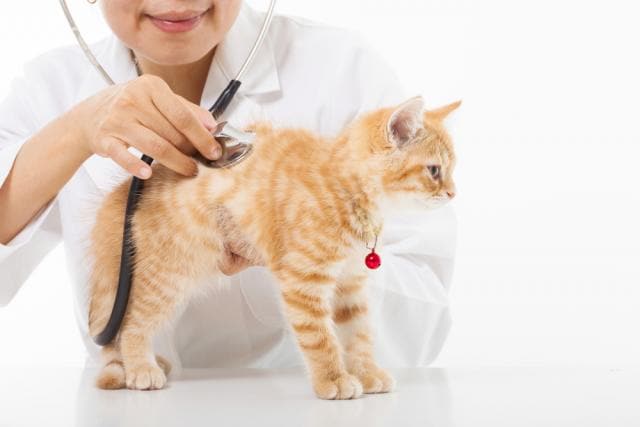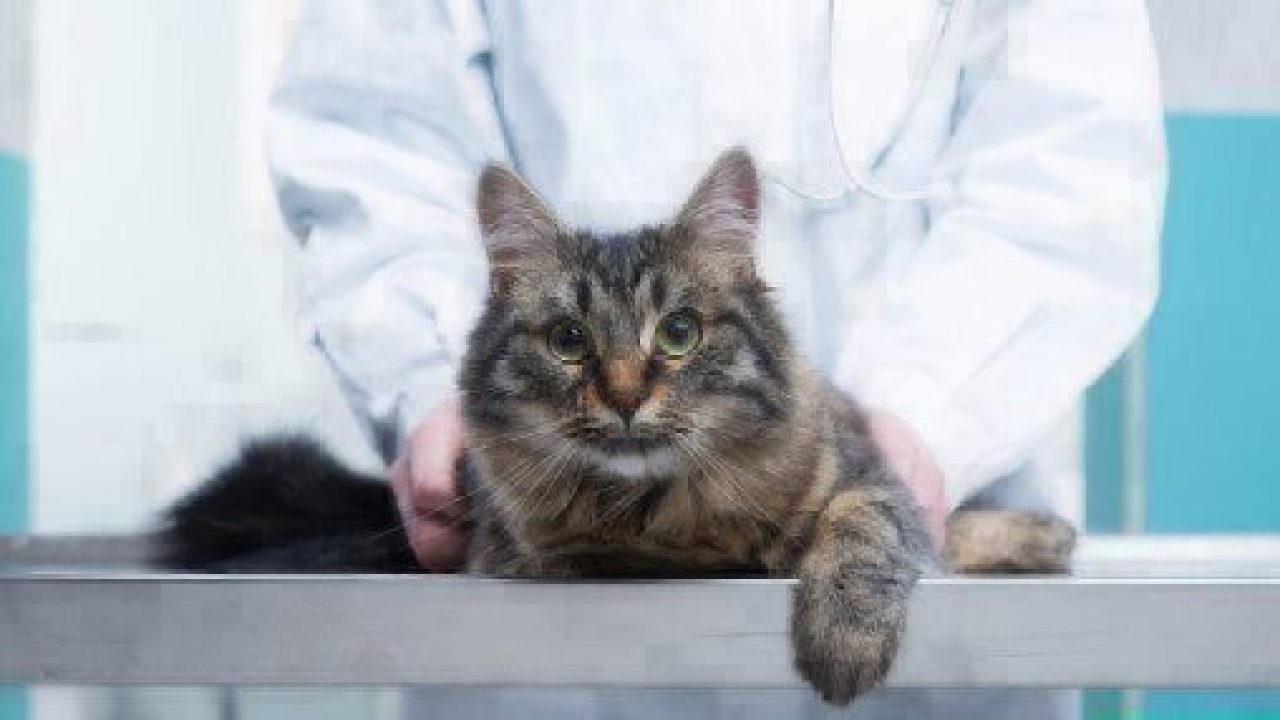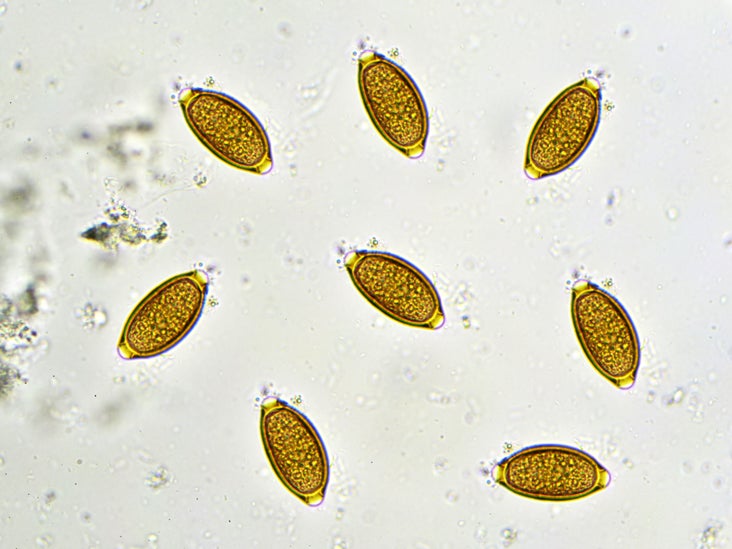What Causes Whipworms In Cats
With the whipworm absorbing so much of its nutrients, your cat will begin to lose weight, become listless, and fall ill. If your cat encounters an infected rodent and then ingests it, he could contract the hookworms.

Trichuris Trichiura Medical Laboratories In 2021 Medical Laboratory Medical Laboratory Science Microscopic Cells
Whipworms are one of the most pathogenic (harmful) worms found in cats, but are quite rare.

What causes whipworms in cats. Causes of whipworms in cats whipworm in cats is caused by the ingestion of water, food or flesh (mice, birds, etc.) contaminated with adult whipworms, whipworm larva, or eggs. The front portion of the worm is very thin (the whip) and the posterior end is thick (whip handle). Whipworms are contracted by ingesting food or water infected with live eggs.
Learn more about the symptoms and treatment of whipworm in cats on petscover.com. A cat becomes infected by ingesting food or water contaminated with whipworm eggs. Whipworm is most commonly passed to a puppy from its mother, prior to birth.
Veterinarians analyze whipworms in felines by taking a feces test. Cats get whipworms in only one way, by mouth. While symptoms of infection are rare in cats, occasionally blood in the stool and/or anemia may result.
Internal parasites such as heartworms, roundworms, hookworms, whipworms, and tapeworms all live inside your pet’s organs. Cats which frequently hang out in common outdoor areas may pass the worms to each other. While in the lungs, these worms have a tendency to cause infection and damage tissue, primarily in the lower respiratory tract.
You will say, of course, that your cat does not eat stools. An infected pet’s stool will have whipworm eggs in it, which is how the infection spreads—animals release more whipworm eggs in the environment through their stool, and other animals may pick up the eggs. Cats contract whipworms by ingesting infested or contaminated matter (e.g., food, water, flesh).
And inspecting it under a magnifying instrument. Roundworms, tapeworms, hookworms and whipworms are parasites that can all be present in your cat. Soon, your cat’s immune system becomes extremely compromised and its bowels become inflamed.
Its stout tail (or reproductive end) which gives the worm a whip shape, hence the name. This worm feeds on the blood by attaching itself to the intestinal wall. Ringworm is not actually a worm but a fungus that affects the skin, hair and nails of a cat.
While puppies are by far the most at risk, older dogs and cats can also become infected in adult life. Causes of cat whipworms the whipworm in cats is due to the ingestion of food, flesh, or water, which is contaminated with whipworm larva, eggs, or adult whipworms. Whipworms can be ingested through ingestion of infested matter, including soil, food, and water, as well as in feces and animal flesh, and can infect cats of any age.
If parasitic eggs or whipworms are present, they will float to the surface of the glass slide. This causes temporary anemia, or excessive blood loss, which requires immediate medical attention. Whipworm infections begin whenever a whipworm egg enters the body of a dog or cat.
Trichuris vulpis and trichuris campanula are whipworms that can infect dogs, and trichuris serrata can infect cats, though whipworm infections in cats are rare. To understand how a cat may become infected with whipworms, an individual must understand the lifecycle and nature of these parasitic worms. Even a few whipworms can jeapordize a baby cat's health by taking too much blood from his tiny circulatory system.
Learn about whipworm infection symptoms, treatment, and prevention. In order to understand how cats might get infected with the whipworms, an owner should understand the lifecycle, as well as the nature of the parasites. Your cat may also become infected if he ingests the hookworm when grooming or when sniffing around infested soil.
After the larvae hatch, they travel up the trachea, where they are swallowed by the cat and flushed through the digestive tract. Whipworms are not directly infectious in the fresh feces. A whipworm infection is an infection of the large intestine caused by whipworm parasites.
The veterinarian will confirm the diagnosis by conducting the fecal flotation procedure on a stool sample. An infected pet’s stool will have whipworm eggs in it, which is how the infection spreads—animals release more whipworm eggs into the environment through their feces, and other animals may pick up the eggs. Roundworms are an example of a common intestinal parasite, meaning that they live in your cat’s intestines and affect the digestion and absorption of food.
Once dogs and cats ingest the larva in the infective eggs, the larva attaches to the lining of the small intestines and eventually move to the large intestines and feed on the blood and tissue lining of the host. How to prevent hookworms in cats There in the soft tissue, whipworms feed off the nutrients from your cat’s already digested food.
Whipworm infections are caused by the parasite trichuris serrata which lives in the large intestines and cecum. Kittens can get whipworms in the same way and not from the mother’s womb or milk. Most worms are spread through the ingestion of eggs from infected stools.
Infection in adult dogs can occur in a number of ways: This results in watery, bloody diarrhea, weight loss and general debilitation. The head (or more accurately the digestive end of the worm) is skinny vs.
The whipworm eggs develop the infectious larval form in 2 to 3 weeks once out in the environment. About 40 days after the initial infection the larvae exit the cat through its feces.

Pin On Pet Health Wellness

Treating Whipworm In Dogs And Cats Petcarerx

Whipworms Parasite Parasites Symptoms Night Itching

Common Types Of Worms Your Dogs Can Get Dog Infographic Types Of Worms Dog Emotions

Natural Remedies For Worms In Dogs - Dogs Naturally Worms In Dogs Vet Medicine Dog Health Tips
What Is Whipworm And Why Should I Care

Whipworms Pets Parasites The Pet Owners Parasite Resource

Whipworms Are Intestinal Parasites That Can Cause Severe Irritation To The Lining Of The Cecum And Colon Large Intestines Animal Medicine Worms In Dogs Dogs

Seizures In Cats Pet Clinic Seizures Clinic

Whipworms In Cats Petmd
Whipworm Infection In Dogs And Cats - Veterinary Partner - Vin

Top 5 Facts About Pet Whipworm Petcarerx

Plantaeris For Dogs Dog Diarrhea Remedy Natural Pet Diarrhea In Dogs

Inulin-pk For Cats Cat Dewormer Cat Care Tips Roundworm

The Most Common Worms In Humans Parasite Lymphatic Filariasis Health Disease

Whipworm Infection Causes Petcarerx

Whipworms In Dogs How To Treat And Prevent This Parasite Problem Daily Paws

Whipworms In Cats Kittens Healthy Paws Pet Insurance

Whipworm Infection Symptoms Causes Treatment And Prevention
